Smartwatches have emerged as a valuable aid for seniors seeking to maintain their independence. These advanced wearables offer a range of practical functionalities such as emergency assistance, medication reminders, and GPS tracking, simplifying everyday tasks.
In addition to these features, smartwatches boast biometric sensors that monitor fitness, sleep patterns, and vital signs. This holistic approach to health management allows seniors to stay proactive about their well-being without needing extensive technical knowledge typically associated with smartphones.
In the following sections, we delve into some of the top smartwatches tailored for seniors, highlighting their key features that cater specifically to the needs of this demographic. While many of our recommendations also rank among the best smartwatches overall, our top choice stands out for its dedicated design catering to seniors’ requirements.
Regardless of the model selected, integrating a smartwatch into one’s daily routine undoubtedly enhances safety and independence during the golden years.
1. Amazfit GTS 4
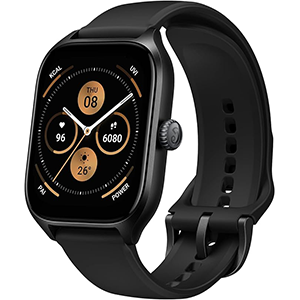
The Amazfit GTS 4 stands out as a budget-friendly smartwatch that doesn’t compromise on essential features typically found in higher-priced alternatives.
Ideal for seniors seeking an affordable smartwatch, the Amazfit GTS 4 offers a comprehensive set of functionalities at a fraction of the cost. Powered by Zepp OS, it seamlessly integrates with both Android and iOS devices for complete connectivity. Preloaded with a variety of apps, including health monitoring tools, it ensures a user-friendly experience.
Equipped with sensors to track heart rate, temperature, blood oxygen saturation (SpO2), sleep patterns, and stress levels, the GTS 4 provides valuable health insights. While some users have reported occasional sensor issues, overall performance remains satisfactory. Amazfit’s promise of fall detection through Zepp OS 2.0, though pending, holds significant promise for seniors, especially those on fixed incomes, as this feature is rarely found in similarly priced options.
With an impressive 15-day battery life, the GTS 4 caters to seniors’ convenience by reducing the need for frequent charging. Its large 1.65-inch AMOLED display ensures readability, enhancing user experience. Despite potential limitations such as the absence of an SOS button and occasional inaccuracies in the heart sensor, the GTS 4’s affordability makes it a standout choice for seniors on a budget.
Pros:
- Extended 15-day battery life
- Affordable price point
- Anticipated fall detection feature
Cons:
- Lack of SOS button
- Occasional reliability issues with heart sensor
2. Apple Watch Series 9
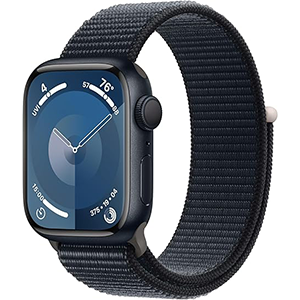
The Apple Watch 9 stands out as one of the most intuitive smartwatches available, particularly for individuals already accustomed to the iOS ecosystem.
With a strong focus on enhancing health and safety, the latest watchOS updates emphasize Apple’s commitment to user well-being. For seniors familiar with iOS, the Apple Watch Series 9 emerges as the premier choice, offering an array of safety features and biometric sensors seamlessly integrated with popular iOS applications.
A standout feature is the Emergency SOS function, activated by pressing and holding the side button, which automatically contacts local emergency services and shares the wearer’s location with designated emergency contacts. Additionally, fall and crash detection triggers Emergency SOS upon sensing sudden impacts followed by immobility. Apple’s recent introduction of Safety Check further enhances user safety by enabling scheduled check-ins.
Biometric capabilities include an electrical heart sensor, an electrocardiogram (ECG) app for detecting irregular heart rhythms, a blood oxygen sensor, temperature sensor, and GPS. These features enable comprehensive health monitoring, aiding in fitness tracking, sleep analysis, and early detection of potential health issues.
Moreover, the Apple Watch Series 9 facilitates communication through messaging services like iMessage, Facebook, and email, either via iPhone connectivity or its own cellular antenna variant, offering independence from a smartphone. However, it’s worth noting that these premium features come with a higher price tag and necessitate daily charging, which may be considered drawbacks for some users.
Pros:
- Fall and crash detection
- Emergency SOS button
- Built-in ECG monitoring
Cons:
- Daily charging requirement for the battery
- Higher price point
3. SAMSUNG Galaxy Watch 6
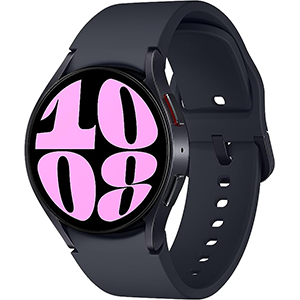
The Samsung Galaxy Watch 6 stands as a premium smartwatch, offering extensive health tracking capabilities across various metrics, making it an ideal choice for users aiming to enhance their well-being.
For elderly individuals accustomed to the Android operating system, the Galaxy Watch 6 presents a sophisticated wearable solution, boasting advanced features alongside Android’s rich third-party app ecosystem. With robust safety and biometric functionalities, users can actively monitor and manage their health with ease.
The Galaxy Watch 6 features some of the most comprehensive health tracking applications available. The Samsung ECG Monitor detects irregular heart rhythms, while the Samsung BIA app utilizes bioelectrical impedance analysis (BIA) technology to measure body composition, including weight, body fat, BMI, skeletal muscle, body water, and basal metabolic rate (BMR). Additionally, Samsung Health tracks workout metrics such as calories burned and steps taken using built-in sensors and GPS, positioning it as one of the top choices for running enthusiasts.
A notable practical feature is the SOS function, activated by a quick press of the watch’s home/power key, enabling users to alert and call emergency contacts. This feature can also automatically trigger in response to detected falls. Moreover, the watch includes an app for storing crucial medical information for emergency responders.
Featuring a bright and legible 44mm AMOLED display, the Galaxy Watch 6 boasts an elegant design. While its battery life averages around 40 hours, slightly lower than some competitors, it still surpasses many others in its price range. Though some advanced features may be less relevant to elderly users, the Galaxy Watch 6 remains an excellent companion for seniors seeking increased independence.
Pros:
- BIA sensors for comprehensive body composition tracking
- Fall detection
- SOS button for emergency alerts
Cons:
- Battery life could be improved
- Higher price point
4. Garmin Forerunner 965
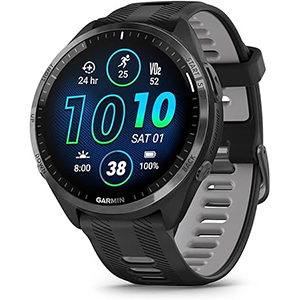
The Garmin Forerunner 965, renowned for its endurance capabilities tailored for marathon runners, also proves to be a remarkable choice for seniors seeking independence, thanks to its exceptional battery life.
Despite its primary focus on catering to the needs of hardcore distance runners, many features of the Garmin Forerunner 965 remain highly relevant for seniors aiming for independent living. Although it comes with a premium price tag, it stands out as one of the finest smartwatches for this demographic.
The standout feature of the Forerunner 965 is its astonishing 23-day battery life, surpassing any other non-hybrid design available. While incident detection is included, it operates within specific parameters—activated only during GPS-tracked activities like walking or biking. This feature sends automated messages with GPS location to designated emergency contacts through the Garmin Connect app, offering added security, albeit with certain limitations.
Primarily tailored for runners, the Forerunner 965 offers various health tracking functionalities, culminating in the Health Snapshot feature. This feature provides a comprehensive two-minute assessment of the user’s vital health metrics, including heart rate, blood oxygen level, respiration rate, stress, and heart rate variability. However, it lacks an ECG monitor, limiting its ability to detect irregular heart rhythms.
While seniors with a sedentary lifestyle may not fully utilize all of its features, the Forerunner 965 excels for those leading an active life. Combined with its extended battery life, it emerges as an unrivaled option.
Pros:
- Impressive 23-day battery life
- Incident detection capability (limited)
- Large AMOLED display
Cons:
- High price point
- Absence of SOS button
- Lack of ECG monitor
5. Google Pixel Watch 2
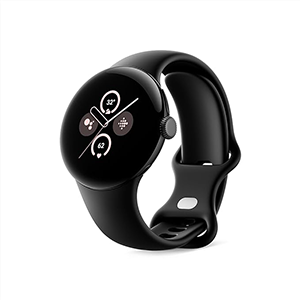
The Fitbit Charge 6 emerges as an excellent option for physically active seniors seeking a user-friendly fitness tracker at a more affordable price point compared to conventional smartwatches.
For seniors prioritizing physical activity without the need for extensive features found in higher-end models like the Garmin Forerunner 965, the Fitbit Charge 6 presents an ideal solution. Its compact and budget-friendly design primarily focuses on step tracking via GPS and vital sign monitoring during exercise. While it lacks an extensive app library, it offers essential functionalities such as YouTube Music, Google Wallet, Google Maps, and notification alerts, ensuring simplicity even for less tech-savvy users.
Despite its streamlined app offerings, the Fitbit Charge 6 provides a comprehensive array of health metrics tailored for seniors. It tracks heart rate, features an ECG monitor for detecting irregular heart rhythms, monitors blood oxygen saturation (SpO2), and tracks skin temperature. These metrics are combined to generate daily Stress Management Scores and Nightly Sleep Scores. Additionally, it offers over 40 exercise modes, reminders for movement, and advanced exercise features accessible through Fitbit Premium membership, although not essential for basic functionality.
With a maximum battery life of up to seven days, the Fitbit Charge 6 accommodates seniors’ active lifestyles, although continuous GPS usage may reduce battery longevity. While lacking an SOS button or fall detection feature, its ease of use and comprehensive health tracking capabilities make it a top choice for seniors.
Pros:
- Built-in ECG monitor
- Up to 7-day battery life
- User-friendly interface
Cons:
- Absence of SOS button
- Small LED display
Conclusion
Selecting the best smartwatch for seniors involves considering a balance of features, usability, and affordability. While there are numerous options available, each with its own set of strengths and weaknesses, certain factors such as health tracking capabilities, ease of use, battery life, and safety features like fall detection and SOS buttons are particularly crucial for elderly users. From budget-friendly options like the Amazfit GTS 4 to premium choices like the Apple Watch 9 and Samsung Galaxy Watch 6, there’s a wide range of smartwatches catering to the diverse needs of seniors. Ultimately, the best smartwatch for a senior will depend on individual preferences, lifestyle, and budget, aiming to enhance their independence, safety, and overall well-being in their golden years.

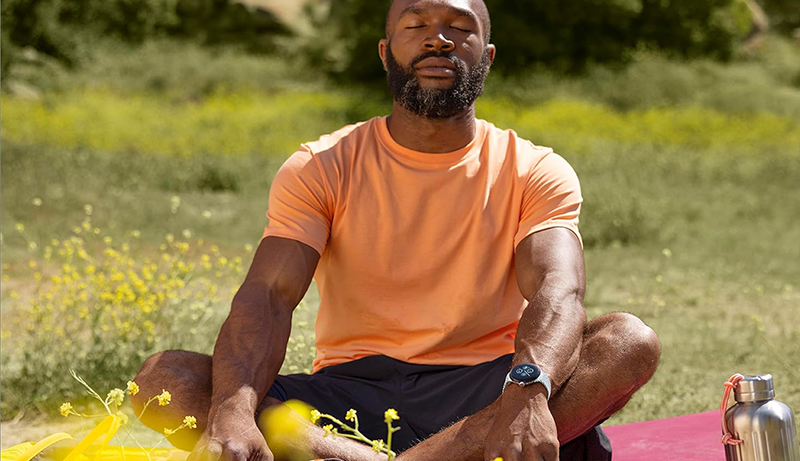
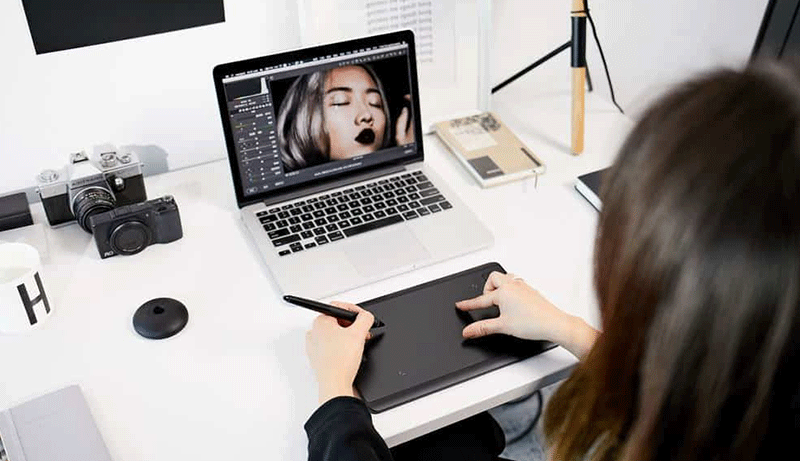


Leave a Reply